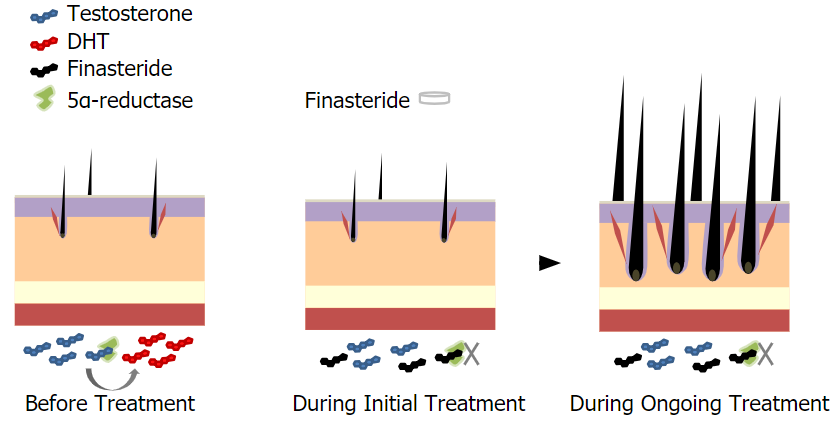One of the most commonly used non-surgical treatments of Androgenetic Alopecia is medication. Finasteride (the active ingredient in the brand Propecia) tackles the problem of hair loss by reducing the amount of DHT (dihydrotestosterone) in your bloodstream that causes miniaturization of the hair follicle and classical symptoms of Alopecia.
The drug blocks activity of 5α-reductase which is responsible for converting testosterone into DHT. The efficacy of Finasteride in reducing further hair loss and enhancing hair growth is well-established in men.

Treatment of Androgenetic Alopecia with Finasteride (Propecia). Before treatment, testosterone (blue) is converted to DHT (red) by 5a-reductase (green) contributing to miniaturization of the hair follicle. Upon treatment, finasteride (black) binds to 5a-reductase, blocking the conversion of testosterone to DHT, thus reducing DHT in the bloodstream.
There is poor evidence that Finasteride positively affects hair growth in women, partly because Finasteride is classified as a Teratogen (i.e. it can disturb the development of an embryo or fetus) thus not recommended for the majority of women.
This medication is prescribed by a doctor and offered as an oral daily dose. Unfortunately it is not a permanent cure and must be taken continuously to see positive results. If treatment is stopped, any progress toward hair re-growth will halt and hair loss will resume as prior to treatment. Potentially detrimental side effects of this medication include sexual dysfunction and depression, however the published reports are conflicting.


